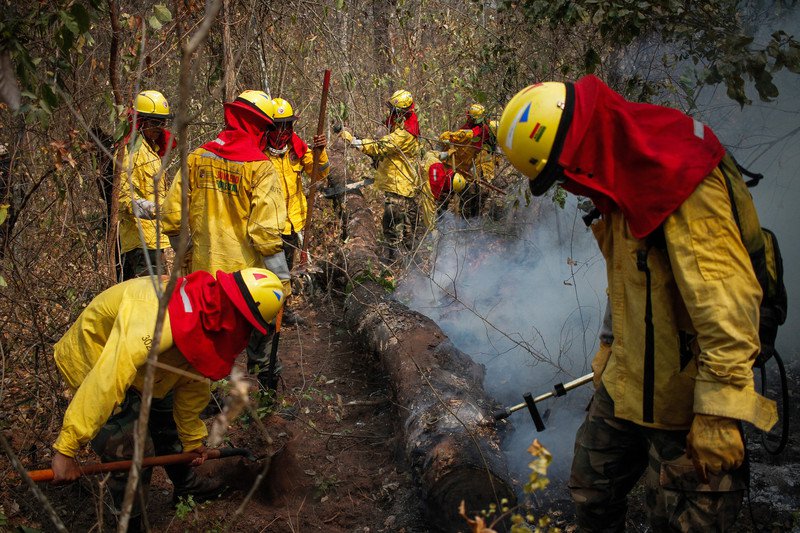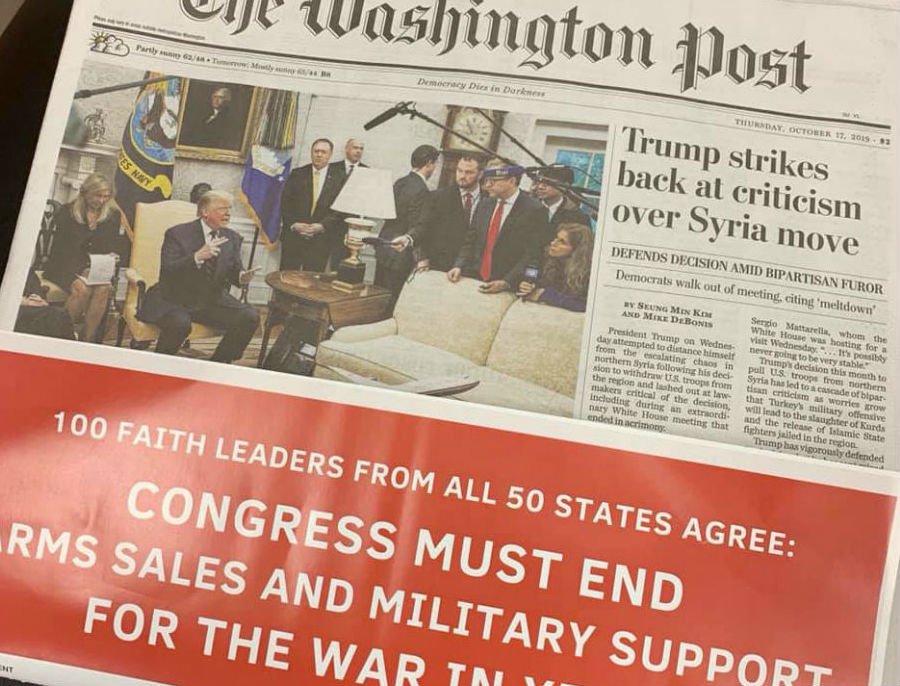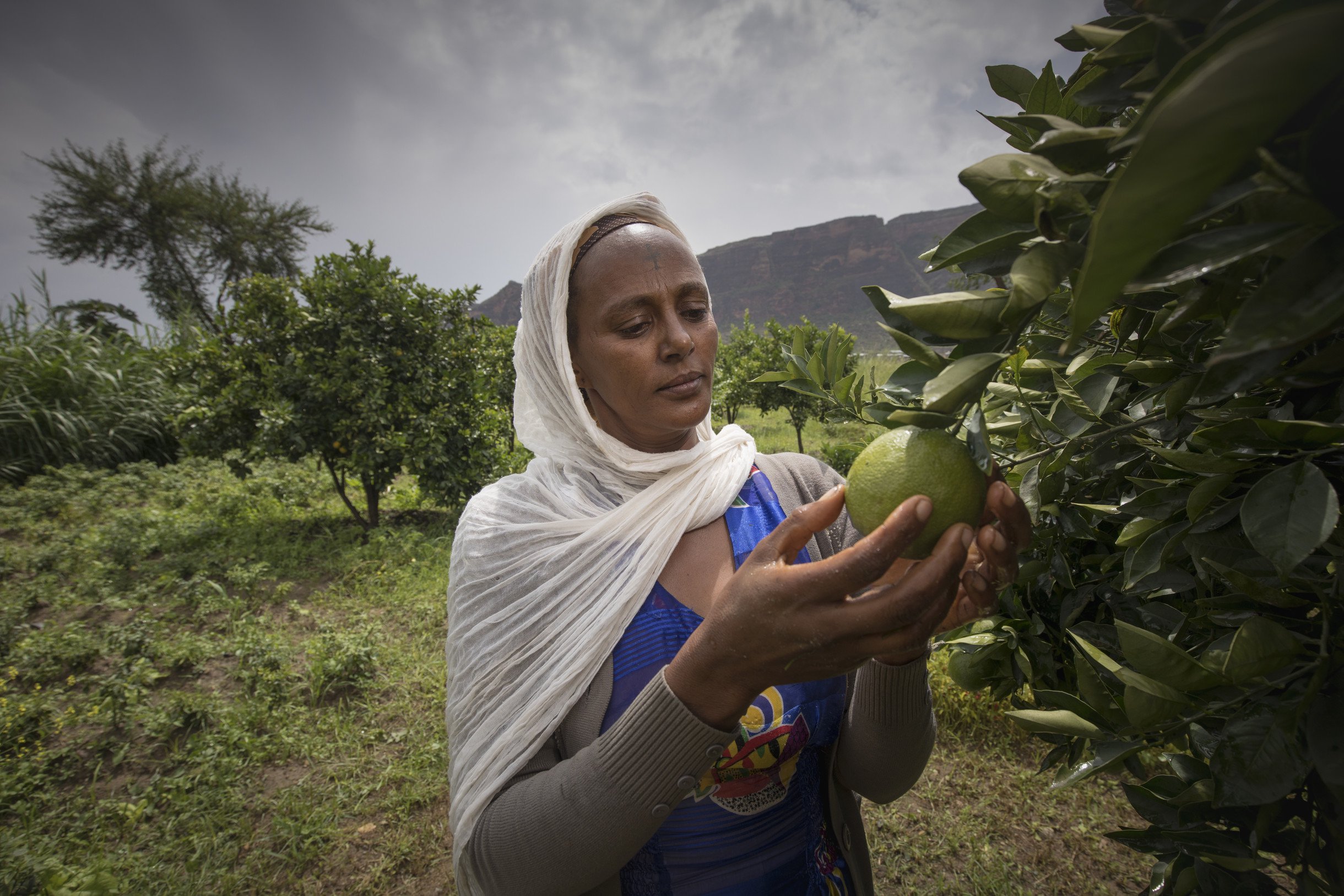A look back at what we accomplished—together
As we reflect on 2019, we’re grateful to you for everything we’ve taken on together, from providing lifesaving aid after disasters to advocating for changes in unjust policies and practices, to developing programs that provide long-term solutions to poverty in countries around the world.
Saving lives in disasters
We stepped up after the cyclones in Southern Africa

In the aftermath of Cyclone Idai in March and Cyclone Kenneth in April, at least 2.6 million people across Malawi, Mozambique, and Zimbabwe needed immediate assistance. Oxfam responded by providing clean water, toilets, hygiene kits, and shelter materials in specific areas. More than six months later, Oxfam and our partners continue to help survivors rebuild, stave off food insecurity, and prevent the spread of cholera with water and sanitation education.
We kept hope alive while the Amazon forest burned

In September, as the world watched the “lungs of the world” burn at an alarming rate, Oxfam and our partners responded to the needs of people living in affected areas of Bolivia. We worked with the government to provide clean water to indigenous communities, the people most vulnerable to the fire's effects, and help families cover basic food needs.
Challenging the powerful
We pushed food companies treat their workers better—including Whole Foods

As part of Oxfam’s Behind the Barcodes campaign, now in its second year, we interviewed farm workers to understand the conditions in which they work. We discovered that workers face abuse everywhere—from fruit pickers and packers in Brazil, to workers on tea plantations in India, and to workers on sweet potato farms here in the United States.
You got the word out, and thanks to your help, we’re seeing a shift in at least one company. In September, Amazon released supplier standards that apply to all of its subsidiaries, including Whole Foods. Those standards recognize the importance of human rights, respecting the environment, and promoting dignity for workers. We hope this is a sign of more progress to come.
We demanded Dignity for All

In the fall, we launched an initiative challenging all presidential candidates–left, right, and center–to act on the factors widening inequality here in the United States and around the world. From fighting climate change to championing gender equality to protecting the rights of refugees and migrants, Oxfam is asking Americans to demand that all presidential candidates ensure that the US lives up to its ideals. Join us and learn more about our vision to achieve Dignity for All.
We called on politicians to end US support for the war in Yemen

Oxfam has been responding to the humanitarian crisis in Yemen since 2015 with aid, including clean water, hygiene items, and cash assistance. But ending this war requires bold action. In October, Oxfam joined 100 faith leaders from all 50 states to send a message to Congress via an ad published in The Washington Post calling on Congress to stop US arm sales that are fueling the war in Yemen.
Building lasting solutions
Developing the skills to survive climate change

For a decade, Oxfam’s R4 Rural Resilience Initiative has given farmers and rural families a new way to manage some of the risks they face from increasingly erratic weather. Oxfam helped initiate this innovative program, and it is now operating in Ethiopia and five other countries in Africa, where 87,000 farmers are involved. As R4 enters its second decade, we are shifting from managing the program's day-to-day work; our partner Relief Society of Tigray (REST) will be steering its next phase.
Dismantling the root causes of migration

Thanks to Oxfam supporters like you, we can take on the issues that force families to flee.
In Central America, we’ve been on the ground for more than three decades with programs that promote gender and economic equality, such as our Saving for Change group savings and loan program, which teaches women how to escape domestic violence, and supports farmers combating food insecurity. We support those struggling with economic hardship, and we advocate for governments, including our own, to implement just fiscal policies.



